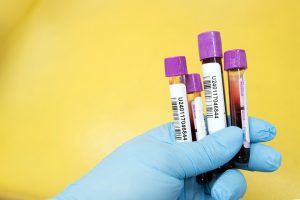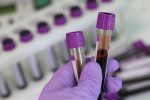
Being that phlebotomists and EKG technicians are among the fastest-growing jobs in the healthcare industry, we have decided to make a short comparison between the two so that you can make a wise decision on which one to choose as your future career.
Whichever you pick, you will not make a mistake as there is a growing need for these jobs, due to the fact that technology has become available and more accessible.
Numerous health conditions can be identified through blood samples and EKG monitoring.
Many people believe that those who wish for a career in the medical field need to spend years in school.
They are wrong, as the greatest advantage when these two fields are in question is that you can start working in a short period of time, being that the training does not take that long.
For entry-level jobs like phlebotomy and EKG testing, you should attend less than a year of training.
Once you finish your training, you will be able to work with patients and you can expect to be among the first people a patient sees.
This guide will be of great help to those interested in a career in medicine who have not been still decided which one to choose.
We need to emphasize the fact that either of these positions could be a great fit.
Page Navigation
- Phlebotomy and EKG Training Information
- What Are the Requirements?
- Training to Become a Phlebotomy Technician
- Phlebotomy Certification Training
- How Much Does Phlebotomy Training Cost?
- How Much Does a Phlebotomist Make?
- What Are the Requirements for EKG Training?
- What Does an EKG Technician Do Each Day?
- How to Train to Become an EKG Technician
- How to Become a Certified EKG Technician
- How Much Does an EKG Technician Make?
- Where Can Phlebotomists and EKG Technicians Work?
Phlebotomy and EKG Training Information
In this short guide, we will speak about both advantages and disadvantages of a career in phlebotomy and EKG training.
Even though they are two different programs, during the training you will be provided with the skills needed.
Do not think that an entry-level position in medicine is not as important as those of a nurse or physician.
Wherever you take a look, in hospitals, clinics, private practices, you will discover that the skills of phlebotomists and EKG techs are needed every day.
What Are the Requirements?
For entry-level jobs such as phlebotomy, you will not need to have any prior experience before you start your training.
Still, there are some requirements that you will need to meet if you want to enroll in most training programs.
An applicant must be at least 18 years old to sign up for phlebotomy training and he/she must possess a high school diploma or GED.
A good thing to know is that the grades you got in high school will not affect your enrollment in a training program.
When it comes to personal skills, none of them is required, but we suggest that you consider the following ones carefully:
- Phlebotomists are medical workers who are in constant communication with a variety of different people, both patients, and staff members. So as to be able to perform this job successfully, you should enjoy working with others and work as part of a team.
- Phlebotomists work with patients, so certain personal qualities such as kindness, patience, and understanding are essential for this job. You need to understand that people can be scared of getting their blood drawn and you are the one who needs to make a better experience for them.
- Last, but not least, phlebotomists must be extremely organized and detail-oriented people. Your supplies must be set up for each patient and correct and accurate labeling and transferring blood to a lab will be your duty.
Only if you believe that you are a person with these skills and personality you should apply for phlebotomy training.
Training to Become a Phlebotomy Technician
When we think about phlebotomy technicians, the first thing that comes to mind is that those are people who draw blood from patients.
However, this is not their only duty.
They are responsible for taking these blood samples and storing them in organized, labeled vials.
Phlebotomists are not people who test the samples, but they need to make sure the samples are properly labeled and transported safely.
This job requires that you understand patient safety, lab procedures, and even be ready for emergency situations.
Emergency situations are typical for phlebotomists who work in a busy hospital.
As you could notice, there are so many responsibilities, which makes it important for a phlebotomist to receive the proper education and training.
A great thing for future phlebotomists is that training typically takes less than a year and can be achieved through college courses or specific training programs.
This is an in-demand career, which caused the creation of some courses online as well.
Hospitals and clinics are in such need of qualified phlebotomists that they have started to offer their own training programs for phlebotomy, with the aim to train people who will work for them later on.
Wherever you decide to receive your training, you can expect to learn the basics.
The majority of phlebotomy training programs are divided into two parts.
The first half of your training is in a classroom setting.
During your classes, you will be learning the following:
- Human anatomy
- Systems of the body (circulatory, respiratory, etc.)
- Lab safety rules
- Proper blood labeling for samples
- Venipuncture techniques
The second half of the program will teach and train students how to draw blood and actual venipuncture will be performed on other classmates or volunteers.
How many successful venipunctures you will need to do so as to graduate will be determined by each training program.
No matter how many bloods draws you need to complete to pass the course, we suggest that you do as many as you can as you will become better and more comfortable in real-life situations with patients.
Phlebotomy Certification Training
The completion of your training program for phlebotomy does not have to be the last step in your educational process.
You can choose t get certified, even though not every state requires certification.
However, this requirement can suddenly become obligatory in your state, so it is a good idea to become a certified phlebotomist.
The first advantage is that you will not have to devote so much time, as you will need less than a year to complete your training and then take a certification exam with an accredited organization.
The top organizations in the United States for certification include:
The second benefit of possessing a certificate is that among so many phlebotomists who may be applying for the same job you will be considered more appropriate and attractive if you have a certification added to your resume.
Last, but not least, your new employer who has chosen you over an uncertified phlebotomist may offer you a higher salary.
How Much Does Phlebotomy Training Cost?
If you have determined that this is the right career for you, you would like to know how much you will need to pay to become a phlebotomist.
The price of this training depends on the course you take, and you can expect that online courses are cheaper.
A phlebotomy training program costs between $1000-$3000 and take from 4-8 months to complete.
If you want to get certified, you will need to attend education slightly longer.
Being that this is a job in the healthcare industry, it is neither too expensive to get the appropriate training for it, nor will you have to go through training for years.
How Much Does a Phlebotomist Make?
We have emphasized the fact that phlebotomy is an entry-level job, so you cannot be expecting to earn too much.
Phlebotomists who get a job right after completing training can make an average of $22,000 per year.
Those who become certified can earn more, approximately over $25,000 each year.
It is important to know that career advancement in phlebotomy is possible and you can make more money by taking more training to focus on a specialty of phlebotomy.
You can easily become a therapeutic phlebotomist who makes a lot more than a phlebotomy tech.
This can be achieved by attending further education.
Once you gain experience and hands-on training, promotions to a supervisory position will be available to you.
Having in mind the fact that phlebotomy is a flexible career, you can also continue your education while working and reach some other professions in the medical field.
You can proceed with your schooling and become a nurse, medical assistant, and even physician, even though you started out as a phlebotomist.
What Are the Requirements for EKG Training?
So as to be allowed to attend EKG training, you will need to possess a high school diploma or GED and be 18 years old.
No other prerequisites are necessary for EKG training, and no experience in the medical field is required.
If you have spent some time in healthcare, it will definitely be helpful and beneficial for you once you enroll in the training.
We will provide you with the necessary information related to the hands-on training that can help you to become an EKG technician.
EKG techs must have some personal characteristics if they want to be the best in their profession.
Some of these include:
- Patience
- Strong attention to detail
- Ability to work with machinery
- An understanding of different technologies
- Willingness to work with people
EKG technicians work as a part of a team.
What they do is monitor the patient’s heart health, while at the same time need to make the patients feel calm and comfortable.
EKG techs work directly with physicians and specialists, so they need to have excellent communication skills.
What Does an EKG Technician Do Each Day?
EKG techs are frequently compared with and related to phlebotomists.
These two professions are both entry-level jobs in the medical field.
Which one you will choose as your future career depends on your own interests, so those who are more interested in technology and the human heart should become EKG techs.
Another similarity between these two is that EKG and phlebotomy are constantly growing in the healthcare industry.
Advancements in technology and the creation of more intricate machines provide a better and more accurate result.
Patients’ conditions can be determined based on different data about their hearts.
Unfortunately, heart disease and other cardiovascular issues are becoming huge problems in the United States.
EKG techs perform different tests so as to catch some of these illnesses early on and help their patients.
Just like in the phlebotomy field, the demand for great EKG techs is higher than ever.
If you wish to become an EKG technician, you should get familiar with their duties.
It typically happens before a patient goes in for surgery.
They cannot perform their job if they do not know how to use specialized equipment and machinery that monitors the heart.
Those EKG techs who possess more training can also do the following:
- Electrocardiograms
- Stress tests
- Telemetry monitoring
People who have been looking for training to become an EKG technician came across other names for this particular job.
EKG tech is the most popular name but there are other titles that mean the same thing.
Some of the most common ones include:
- Cardiac monitor technician
- ECG tech
- Cardiographic technician
How to Train to Become an EKG Technician
If you believe that phlebotomy is not the right career for you, you can choose to attend training to become an EKG tech.
It is not much different from phlebotomy training, but we need to emphasize the fundamental difference.
The majority of EKG techs start out in other areas of the healthcare industry, such as EMT and paramedic, so they can get some experience prior to attending the training.
That way they learn more about what a cardiac monitor technician does.
So as to start working as an EKG tech, you can receive on-the-job training or take an EKG technician program.
Both options will provide you with what you need to know about this job.
On-the-job training requires that you work with a cardiologist who will teach you about the machines used to monitor a patient’s heart.
Plus, you will get familiar with the ways to read and collect that data and develop reports from it to give to physicians.
It is worth mentioning that on-the-job training is free, and you should not expect to get paid much during the training period.
This is the only option to get an education in cardiovascular medicine at no cost.
On the other hand, for those who want to get educated prior to starting working, there are EKG training programs.
The majority of programs last 4-6 weeks and can be attended at different colleges across the country.
After the finishing of the training through one of these programs, you will learn the following:
- Medical terminology
- EKG equipment training
- Lab safety
- Anatomy
Most EKG training is hands-on as you will need to know how to use the equipment.
You need to spend more time gaining experience.
How to Become a Certified EKG Technician
If you wish to possess certification as an EKG tech, you can get it from Cardiovascular Credentialing International.
Becoming certified is possible after you gain enough experience or take the proper training.
Just like phlebotomy, certification is not required to start working, but it can be beneficial.
You will find a job easier and your salary will be higher.
Becoming a Certified Cardiographic Technician (CCT) is achievable after six months of experience.
That is the moment when you will be allowed to take the exam.
To get more information about this exam and find sample questions and study materials, you should check out the Cardiovascular Credentialing International website.
Can I Get Extra EKG Training?
EKG techs who wish to improve and continue their training and education can choose among many opportunities.
It is good to know that the more training you have you can get a better your salary.
Extra training is typically focused on specific parts of cardiovascular health, involving specialized tests, advanced monitoring, and stress tests.
The additional education can take 18-24 months.
This will not only help you boost your income, but you may have more job prospects as well.
How Much Does an EKG Technician Make?
The median average salary for an EKG technician is quite higher than that of a phlebotomist and it is around $55,500.
Those who possess certification and experience can earn over $80,000 a year.
Cardiac monitor technicians earn more than phlebotomists when they first start out.
This is due to the fact that heart disease and heart attacks are killers and it is important to have qualified technicians in your medical facility.
The better they are, the more accurately and successfully they will use machinery to keep track of heart monitors correctly.
So as to have a quality EKG tech, medical facilities are willing to pay a high salary.
EKG techs are the first line of defense as they are those who help prevent or ‘catch’ a heart issue before it turns out to be life-threatening.
An EKG technician profession can be used as a stepping stone toward a different medical career which will only require more training.
Once you reach an Associate’s degree, you can work in radiation therapy.
Some people decide to become a nurse or even a cardiologist.
If you are satisfied with your EKG profession, you can take advantage of promotional opportunities within the field, such as becoming an ECG tech.
These will improve your payment but they will require more experience and seniority.
Where Can Phlebotomists and EKG Technicians Work?
You can find both phlebotomists and EKG techs working in hospitals or clinics.
Job opportunities are available in private practices as well.
Phlebotomists can work in a variety of locations, such as blood banks, the American Red Cross, nursing homes, and even prisons.
Wherever people need their blood drawn is a possible working location for a phlebotomist.
This is the basic difference between working environments in these two jobs.
EKG technicians can find work in medical facilities only.
Working conditions may also be a little different.
Stamina is needed for both professions as these medical workers need to handle being on their feet for a long period of time.
EKG techs will be working with machinery, while phlebotomists work with the tools used for venipuncture.
EKG techs sometimes work with patients who have disabilities and they need to be strong so as to be able to move and maneuver these patients.
Phlebotomists on the other hand need to possess a stronger ability to keep a patient calm.
The opportunities are numerous as there are many different places you can choose to work.
It is up to you to decide what type of working environment would make you satisfied.
These two professions have a lot of similarities, but the best things about both of them are that you can get a proper education and training in no time and stay in these fields or use them to get to other jobs in the medical field.








